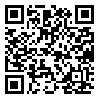year 8, Issue 2 (Summer 2020)
Ann Appl Sport Sci 2020, 8(2): 0-0 |
Back to browse issues page
Download citation:
BibTeX | RIS | EndNote | Medlars | ProCite | Reference Manager | RefWorks
Send citation to:



BibTeX | RIS | EndNote | Medlars | ProCite | Reference Manager | RefWorks
Send citation to:
Addesa F, Delice M E. Reform Effectiveness and Unresolved Issues of the Football in the Turkish Super League. Ann Appl Sport Sci 2020; 8 (2)
URL: http://aassjournal.com/article-1-790-en.html
URL: http://aassjournal.com/article-1-790-en.html
1- School of Sport, Leeds Beckett University, Leeds, UK , f.a.addesa@leedsbeckett.ac.uk
2- DISES, University of Salerno, Fisciano SA, Italy
2- DISES, University of Salerno, Fisciano SA, Italy
Abstract: (5814 Views)
Background. Following the successful outcomes of the national team, that finished third in the 2002 FIFA World Cup, and the positive club performance in the UEFA competitions at the beginning of the new millennium, Turkish football was expected to reaffirm and further develop in the following years, exploiting also the favorable economic conditions. However, its growth and evolution did not meet the expectations, and in the latest years several managerial aspects of the Turkish Football Federation have begun to be questioned, which has led the federation itself to reform football in areas such as foreign players’ quota, financial requirements, and stadiums.
Objectives. The main aim of this article is to identify and discuss these issues and how effective the reforms implemented by the Turkish Football Federation have been in the short run.
Methods. The research is done through the application of the historical method and the use of secondary data.
Results. Our results show that these reforms do not seem to have had a significant impact so far.
Conclusion. While some of the reforms likely need more time for their effects to be tangible, the general impression is that Turkish football would need a different approach and more incisive policy interventions.
Objectives. The main aim of this article is to identify and discuss these issues and how effective the reforms implemented by the Turkish Football Federation have been in the short run.
Methods. The research is done through the application of the historical method and the use of secondary data.
Results. Our results show that these reforms do not seem to have had a significant impact so far.
Conclusion. While some of the reforms likely need more time for their effects to be tangible, the general impression is that Turkish football would need a different approach and more incisive policy interventions.
Full-Text [PDF 1015 kb]
(8436 Downloads)
APPLICABLE REMARKS
APPLICABLE REMARKS
- TFF may set a budget share to be invested in the development of the youth academies as a compulsory requirement for all the Turkish clubs.
Unresolved Issues in Turkish Football 7
- Turkish clubs should modify their approach: they should nurture and develop home-grown players and buy young talent from peripheral leagues to develop and re-sell to the European big clubs rather than continuing to buy players in an advanced stage of their career.
Unresolved Issues in Turkish Football 7
- Turkish clubs should modify their approach: they should nurture and develop home-grown players and buy young talent from peripheral leagues to develop and re-sell to the European big clubs rather than continuing to buy players in an advanced stage of their career.
Type of Study: Original Article |
Subject:
Sport Management and its related branches
Received: 2019/09/4 | Accepted: 2019/11/22
Received: 2019/09/4 | Accepted: 2019/11/22
References
1. Kurt M, Atayman V, Kurultay T. Arenada" show": Modern sporun dünü ve bugünü: Sorun yayınları; 1997.
2. Tanış M. Futbol kulüplerinde iç denetim organizasyonu: İstanbul Ticaret Üniversitesi; 2015.
3. Akşar T. Endüstriyel futbol: Literatür; 2005.
4. Amis J, Silk M. Rupture: Promoting Critical and Innovative Approaches to the Study of Sport Management. J Sport Manage. 2005;19(4):355-66. [DOI:10.1123/jsm.19.4.355]
5. Seifried C. Review of historical methods for sport management: How studying history benefits sport management. Int J Sport Manage. 2010;11:581-601.
6. de Wilde A, Seifried C, Adelman ML. The Culture of History in Sport Management's Foundation: The Intellectual Influence of Harvard Business School on Four Founding Sport Management Scholars. Quest. 2010;62(4):406-22. [DOI:10.1080/00336297.2010.10483657]
7. Güncellenme S. Devrim olacaksa: Skorer; 2014.
8. Antonioni P, Cubbin J. The Bosman Ruling and the Emergence of a Single Market in Soccer Talent. Eur J Law Econ. 2000;9(2):157-73. [DOI:10.1023/A:1018778718514]
9. Pearson G. The Bosman Case, EU Law and the Transfer System. Liverpool: University of Liverpool Football Industry Group; 2004.
10. Brownstone J. The Bosman Ruling: Impact of Player Mobility on FIFA Rankings 2010.
11. ÜçıŞıK F. Sporda sorunlar ve çözüm önerileri: Ötüken; 1999.
12. Altay İ, Ünlü S, Karadeniz F. Kimler Geçti Kimler Var. Türkiye: Sabah Gazetesi. 2012.
13. Yüce A, Katırcı H, Kuzu C. Türk Futbolunda Yabancı Futbolcu Sınırlaması ve Türk Futbolcuların Görüşleri. CBÜ Beden Eğitimi Spor Bilimleri Derg. 2017;12(2):24-39.
14. Cox TH, Lobel SA, McLeod PL. Effects of Ethnic Group Cultural Differences on Cooperative and Competitive Behavior on a Group Task. Acad Manage J. 1991;34(4):827-47.
https://doi.org/10.5465/256391 [DOI:10.2307/256391]
15. Gibson CB. Do they do what they Believe they can? Group Efficacy and Group Effectiveness Across Tasks and Cultures. Acad Manage J. 1999;42(2):138-52.
https://doi.org/10.2307/257089 [DOI:10.5465/257089]
16. Horwitz SK, Horwitz IB. The Effects of Team Diversity on Team Outcomes: A Meta-Analytic Review of Team Demography. J Manage. 2016;33(6):987-1015. [DOI:10.1177/0149206307308587]
17. Ozbay C, Erol M, Turem Z, Terzioglu A. The Making of Neoliberal Turkey. Turkey: Routledge; 2016. [DOI:10.4324/9781315562766]
18. Keddie P. The Passion: Football and Story of Modern Turkey: Tauris; 2018. [DOI:10.5040/9781350989078]
19. News D. Large Turkish football sponsor quits backing game Istanbul: Daily News; 2015
Send email to the article author
| Rights and permissions | |
 |
This work is licensed under a Creative Commons Attribution-NonCommercial 4.0 International License. |








